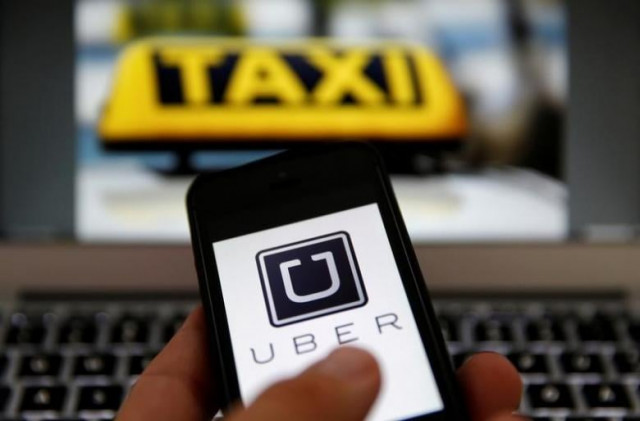Uber lauches new security feature to curb driver fraud
Initiative prevents fraud and protects drivers' accounts from being compromised

An illustration picture shows the logo of car-sharing service app Uber on a smartphone. PHOTO: REUTERS
The Real-Time ID Check -- Uber’s latest security feature -- uses Microsoft Cognitive Services to recognise who really is behind the wheel.
Uber says Pakistan one of fastest growing global markets
“Real-Time ID Check prompts drivers to share a selfie before going online to help ensure the driver using the app matches the account we have on file. This prevents fraud and protects drivers’ accounts from being compromised. It also protects riders by building another layer of accountability into the app to ensure the right person is behind the wheel,” a statement issued by Uber reads.
Reports had earlier emerged that drivers who registered for Uber were not necessarily those behind the wheel. Photos are often outdated or ineffective when it comes to verifying drivers' identities, leaving customers at risk. The new feature keeps Uber in direct visual contact with drivers before they begin a ride.
“Drivers are asked periodically to take a selfie in the Uber app before they accept rides,” the statement reads. Uber then uses Microsoft Cognitive Services to compare the photo to the one present on file. If the two photos don’t match, the account is temporarily blocked till Uber takes futher action.
Uber announced that during a pilot of the Real-Time ID Check, “the majority of mismatches were due to unclear profile photos. And more than 99% of drivers were ultimately verified,” according to the statement. Verification only takes a few seconds to complete, making for a safe and secure ride. The service is currently available across select US cities but is likely to expand.
Uber vs Careem: Which online taxi service is better
The ride-hailing behemoth recently expanded local operations in Pakistan, unlocking Karachi – a teeming urban metropolis of over 20 million people. Uber’s largest competitor in Pakistan is Dubai-headquartered Careem, which operates in 29 cities across the region and raised US$60 million in its last funding round. It remains to be seen whether Uber or Careem launch a similar feature for Pakistan to allay security fears.


















COMMENTS
Comments are moderated and generally will be posted if they are on-topic and not abusive.
For more information, please see our Comments FAQ